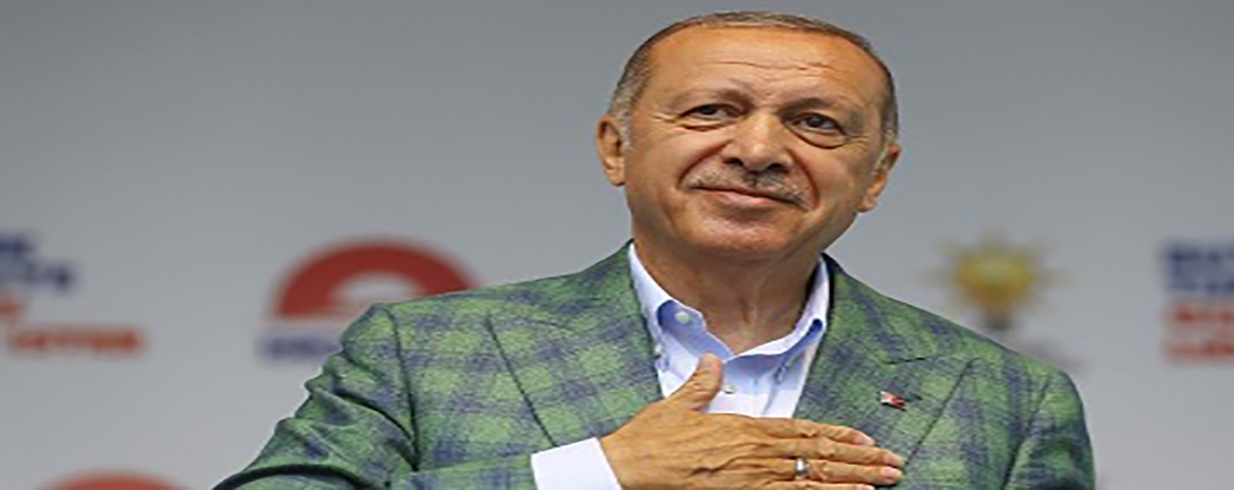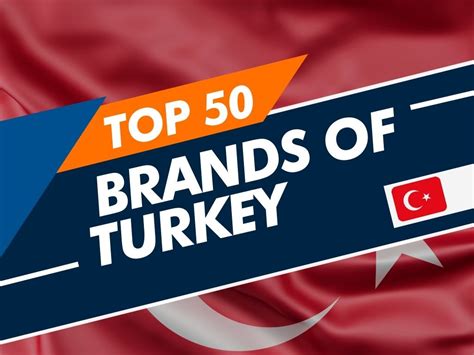Turkey's memorable presidential races: Erdoğan claims another triumph
The occupant President and Administrator of AK Party, Recep Tayyip Erdoğan, added another poll triumph to his political record with his latest win, which will empower him to serve the nation for the following 5 years as the Republic's thirteenth president.
President Recep Tayyip Erdoğan guaranteed yet another triumph in the nation's political history with his victory in Sunday's presidential races, with 52.6 percent of the votes. For the following five years he'll fill in as Turkey's thirteenth leader of the Republic.
"The general population have given us the official and authoritative obligations," Erdoğan stated, talking at a question and answer session in Istanbul, and offered his thanks for the general population's help.
"With nearly 90% participation, Turkey has shown how democratic it is," Erdoğan said. He included that the Western nations, which have bring down interest rates, should change their position against Turkey's majority rule government.
The president said his legislature will keep on taking Turkey higher than ever of monetary and social improvement in the new term.
"The time has come to forget about the competition time frame contention," Erdoğan stated, and included that Turkey will progress into the new presidential framework in a quick way.
Erdoğan kept running for president against five different opponents as the joint applicant of the People's Alliance, shaped by his Equity and Improvement (AK Party) and the Patriot Development Party (MHP).
As per informal outcomes, the occupant president turned out as the champ in two of the three most-populated regions, Istanbul and Ankara, while his adversary the principle resistance Republican Individuals' Party (CHP) candidate Muharrem Ince, got the dominant part of votes in Izmir. Ince got 30.8 of the general votes, an expansion from his party's (CHP), conventional numbers in the nation, which lie in the vicinity of 20 and 25 percent. Beside Ince, the recently settled Good Party (İP) Chairwoman Director Meral Akşener, the Peoples' Democratic Party (HDP) previous co-Seat Selahattin Demirtaş, the Felicity Gathering (SP) Executive Temel Karamollaoğlu and the Patriotic Party (VP) Administrator Doğu Perinçek additionally kept running as presidential candidates. Following Erdoğan and Ince, Demirtaş got 8.1 percent, while Akşener receieved 7.4 percent of the votes. The SP and VP applicants got 0.9 and 0.2 percent individually.
Erdoğan won the help of the lion's share in 64 territories, while his nearest match, Ince, guaranteed triumph in eight areas only, and HDP competitor Demirtaş turned out as the victor in nine regions, which are all in the eastern and southeast of the nation. The occupant president saw an expansion in help in Istanbul and Ankara, two areas where Erdoğan had not gotten a lion's share in the April 16, 2017 referendum on the protected corrections. Ince could anchor the larger part on the west shore of the nation, where his gathering has generally had greater part bolster, except for the eastern Tunceli region, another CHP fortress.
Erdoğan was the primary prominently chosen president
In 2014, Turkey had, out of the blue, chose its leader through prominent voting. At that point, three competitors had contended: Erdoğan, Demirtaş, and the joint applicant of the CHP and MHP Ekmeledding Ihsanoğlu.
Erdoğan was chosen with 51.8 percent as Turkey's first president chosen with a famous vote, trailed by Ihsanoğlu at 38.4 percent and Demirtaş at 9.8 percent. The victor Erdoğan had gotten in excess of 21 million of votes, while Ihsanoğlu had gotten 15.58 million and Demirtaş got 3.95 million of votes.
In the three most populated regions of Turkey, Istanbul, Ankara and Izmir, Erdoğan had come as the victor of the most votes in Istanbul and Ankara, while Ihsanoğlu had asserted most of the votes in the CHP fortress western region of Izmir. While Erdoğan guaranteed most of the votes in focal and northern regions, the CHP candidate had gotten most of the votes in the western and southwestern beach front regions. Demirtaş had asserted lion's share of the votes in the eastern and southeastern area, which are for the most part Kurdish-populated, trailed by Erdoğan. The support rate in 2014 presidential races was almost 74 percent.
Progress to presidential framework starts
Starting today, the administration arrangement of the nation, which has been grinding away since the development of the Republic of Turkey in 1923, will start to transform from the parliamentary framework to the presidential official framework.
The established changes important to change the legislature from a parliamentary to a presidential framework were affirmed by the general population in a year ago's submission on April 16. The most unmistakable change is that the legislature will now be ruled by a president, rather a leader, as the post is currently destroyed.
In an indication of more streamlined administration, the quantity of ministers, named by the president, will diminish from 21 to 16. The services won't be evacuated rather they will be consolidated, with the Foreign Ministry and European Association Service joined under a solitary portfolio.
The same is valid for the Traditions and Trade Service and Economy Service, the Service of Work and Social Security, the Service of Family and Social Policies, the Service of Food, Agriculture and Livestock, the Service of Forestry and Water Issues, the Service of Advancement, and the Service of Science, Industry, and Innovation. With the new framework, a few associations will now be sorted out as organizations, partnered with the administration, including the National Intel Office (MİT), the Turkish Military General Staff, the Administration of Defence Industry, the National Security Chamber, the Administration of Methodology and Spending plan, the Administration of Religious Undertakings, the State Examination Board and the Administration of Communications. A different chain of importance of organizations under the administration will now run the legislature.
Another presidential managerial office will be established to run the every day routine of the administration. Four new workplaces are likewise being set up to present a quicker and more vital basic leadership process in administration.
Workplaces on HR, finance, investment, and digital change will be set up to direct the state's HR and organization the state's advanced change to adjust to the computerized age and battle cyberterrorism. Nine separate boards will create, direct and arrange applicable approach proposals. The primary need will be an all the more successfully run government by assigning obligation with expert. One of the principle central purposes of the change of the state will be to initiate a more viable monetary administration structure. The quantity of services connected to the running of the economy will be diminished from six and their duties will be all the more obvious to better outline their territories of impact. The numerous aspects of counterterrorism will be directed into a solitary and more composed structure for a superior facilitated and more viable battle against terrorism.
Recep Tayyip Erdoğan, presidential candidate of the Justice & Advancement Party (AK Party)
The officeholder president who filled in as executive in the vicinity of 2002 and 2014, Erdoğan turned into Turkey's first president who was specifically chosen with the votes of the balloters in 2014. He was the joint candidate of the People's alliance Party, which was shaped by the AK Party and Patriot Development Party (MHP).
Muharrem Ince, presidential competitor of the Republican Individuals' Gathering (CHP)
Ince has been CHP parliamentarian four back to back circumstances in 2002, 2007, 2011 and 2015. He flopped twice to win against CHP pioneer Kemal Kılıçdaroğlu for party chairmanship. Known for his red hot talk and populist style, he was named by the CHP as a presidential candidate toward the beginning of May.
Selahattin Demirtaş, presidential competitor of the Peoples' Democratic Party (HDP)
Demirtaş is the previous co-seat of the HDP. He was a legal advisor before he entered legislative issues as an individual from the Vote based Society Gathering (DTP) in 2007, he was chosen as an autonomous parliamentarian from southeastern Diyarbakır area in 2007. Demirtaş is as of now held in pre-preliminary confinement for charges identified with supporting PKK terrorists.
Meral Akşener, presidential candidate of Good Party (IP)
Akşener was selected by the İP, which was shaped in October 2017 independent from anyone else and previous protesters of the MHP. She is as of now the pioneer of the İP, and filled in as the Interior Minister of Turkey between November 1996 and June 1997.
Temel Karamollaoğlu, presidential competitor of the Felicity Gathering (SP)
Karamollaoğlu has been filling in as the executive of the SP since October 2016. He served two terms as a deputy in the focal Sivas region and furthermore filled in as chairman of Sivas from 1989 to 1995 for the Islamic traditionalist Welfare Gathering, which was restricted in 1998.
Doğu Perinçek, presidential competitor of the Patriotic Party (VP)
Perinçek is a legal advisor and current executive of the VP. He entered legislative issues by building up the far-left/Maoist Progressive Laborers' and Workers' Gathering of Turkey in 1969. The VP is known for its hostile to Western, neo-patriot standpoint.






